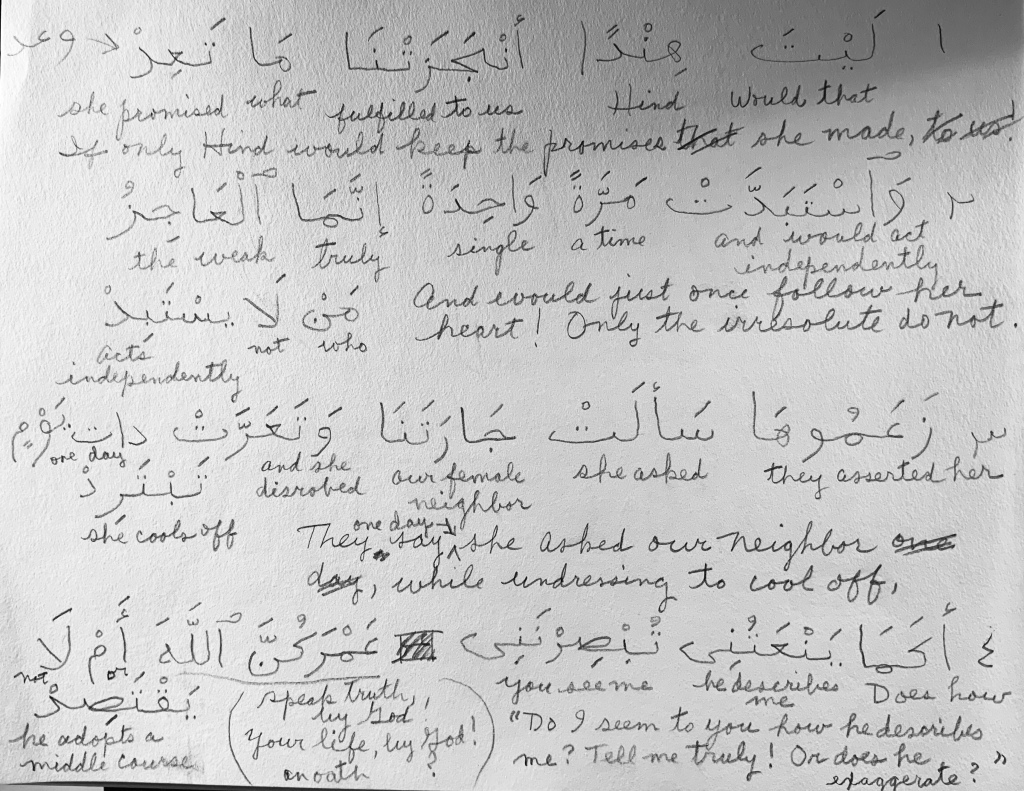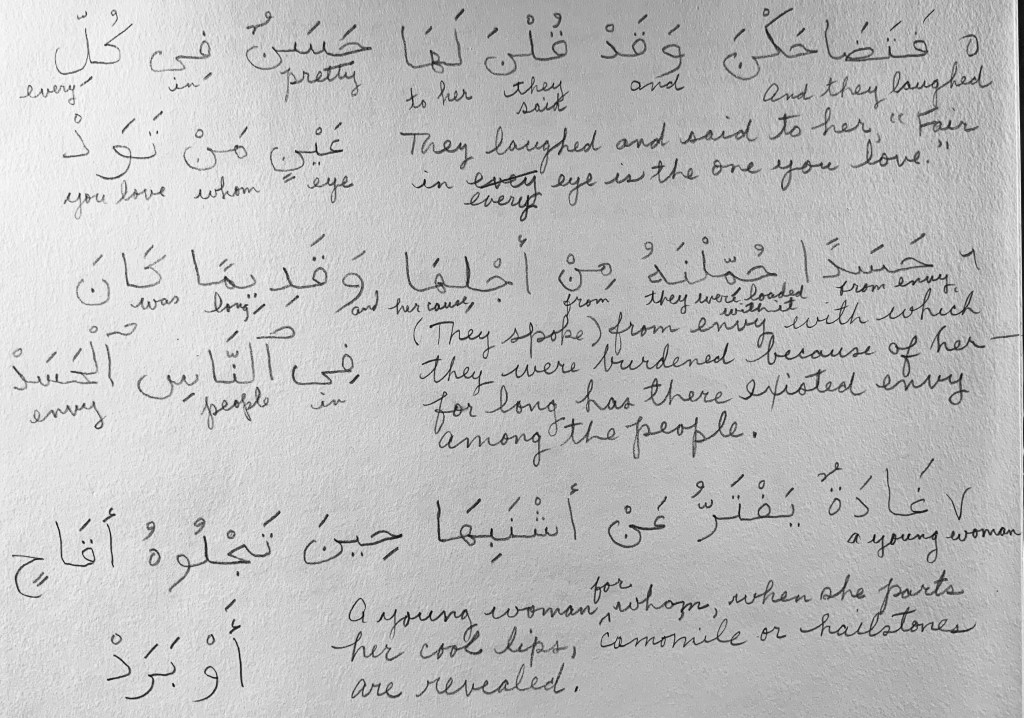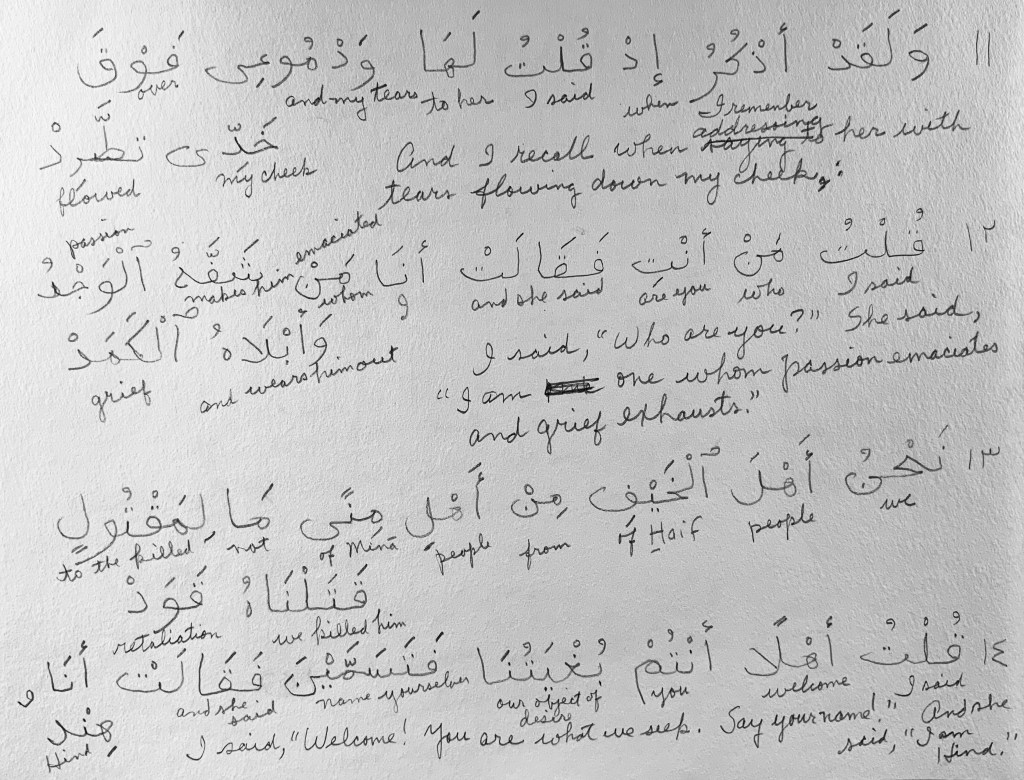
^Umar ibn Abī Rabī^a, son of a wealthy merchant of Mecca, lived ca. 643-719 A.D. His legend is that of a womanizer, his verses said to be “the greatest crime ever committed against God.”
1 If only Hind would keep her word and heal our souls of what they suffer,
2 If just once she’d show some independence. Those who cannot do so are the weak!
3 They say she asked our women neighbors one day as she stripped to bathe:
4 “Do you make me out as he sees me — speak truth, by God! — or is he an excessive fool?”

5 They laughed together and said to her, “Ravishing in every eye is the one you love!”
6 It was from envy which they bore on her account — long has such envy dwelt in folk —
7 For a woman who discloses camomile or hailstones when she parts cool lips,

8 With eyes whose glance is starkly black on white, her neck a slender suppleness;
9 A tender presence, cool in the dog days when summer’s climax blazes;
10 Warm in the winter place, a nighttime blanket for a young man gripped by cold.

11 I remember speaking to her with tears flowing down my cheek,
12 Saying, “Who are you?”; she replying, “One whom passion renders gaunt and grief exhausts.
13 We are the people of al-Haif, from those of Minā; for whom we kill there’s no retaliation.” [See note.]
14 I said, “Welcome! You are the object of our desire. Say your name!” She said, “I am Hind.

15 My heart is wrecked (she said), for it enwraps a straight spear-shaft flung unerringly, clad in sumptuous cloth.” [See note.]
16 “Truly your people are neighbors to us; we and they are a single thing!”
17 They told me that she had spit on knots for me. How excellent are those knots! [See note.]
18 Every time I said to her, “When can we meet?” Hind laughed and would reply, “After tomorrow!”
Notes
13 Al-Haif and Minā play an important role in the Mecca Pilgrimage. “Al-Khaif is the summit of Minā near Mecca… ‘All Minā is a place of sacrifice,’ so that the lover ‘slain’ there by the beauty of the beloved is to be accounted a sacrifice and therefore not covered by the laws of retaliation.” (Arberry, p. 42)
15 Hind compares her suitor to a naturally straight spear-shaft [ṣa^daẗ(an)] which travels a true path [taṭṭarid], dressed in luxurious cloth [fī sābirīy(in)].
17 Arberry’s note cites the practice of sorcery as “blowing on knots.” Dozy (Supplément aux Dictionnaires Arabes, ii, 694) says the verb [nafaṯa] should be translated cracher (spit), not souffler (blow), or for greater clarity, souffler en crachant (blow while spitting). Precision is all, mes amis!
(c) 2023 JMN — EthicalDative. All rights reserved
